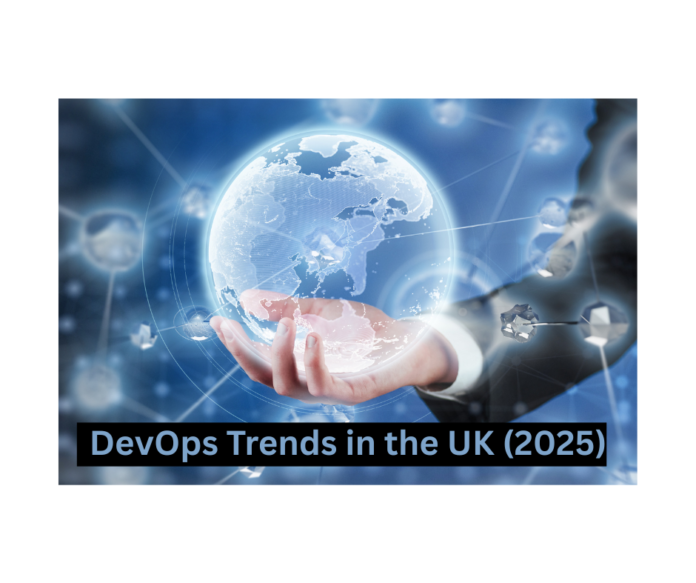DevOps in the UK What Every Tech Team Needs to Know in 2025
In 2025, DevOps is no longer a buzzword—it’s the backbone of agile, secure, and scalable software delivery across the UK’s technology sector. From fintech startups in London to manufacturing giants in the Midlands, UK businesses are increasingly adopting DevOps practices to stay competitive, reduce time to market, and improve customer satisfaction.
Whether you’re a CTO, IT manager, or cloud engineer, this guide explains what DevOps means for UK teams in 2025, the latest trends, and how to implement best practices that meet the unique demands of the UK market.
What is DevOps in 2025?
DevOps (a combination of “development” and “operations”) is a set of practices that combine software development and IT operations. The goal is to shorten the software development lifecycle and deliver high-quality software continuously.
In 2025, DevOps in the UK is heavily shaped by:
-
Cloud-native development
-
Infrastructure as Code (IaC)
-
Security as Code (DevSecOps)
-
AI/ML-driven automation
-
Sustainability and green computing
Why DevOps Matters for UK Tech Teams
-
Faster Time to Market
With increased pressure from European and global competitors, UK companies must innovate quickly. DevOps enables continuous integration and continuous delivery (CI/CD), allowing faster rollouts of features and updates. -
Cost Efficiency
UK businesses are still navigating high inflation and rising operational costs. DevOps practices help teams optimise cloud spend through automation, right-sizing, and better resource provisioning. -
Compliance with UK & EU Regulations
With GDPR and upcoming UK-specific data regulations, DevOps practices integrated with automated compliance checks help maintain regulatory alignment without slowing down development. -
Hybrid and Remote Work Support
DevOps supports distributed teams by using cloud-based DevOps pipelines, GitOps, and container orchestration platforms like Kubernetes, which are now standard across the UK.
Key DevOps Trends in the UK (2025)
1. Cloud DevOps: AWS, Azure, and GCP Dominate
In the UK, AWS and Azure lead the cloud market, with many enterprises using hybrid cloud strategies. DevOps engineers are increasingly certified in AWS DevOps Engineer – Professional and Azure DevOps Engineer Expert, and leveraging services like:
-
AWS CodePipeline & CodeBuild
-
Azure DevOps Services
-
GCP Cloud Build & Cloud Run
2. GitOps for Version-Controlled Deployments
GitOps is gaining momentum in 2025, especially among financial institutions. Tools like ArgoCD and Flux allow UK teams to manage infrastructure and applications declaratively through Git repositories.
3. DevSecOps Integration
Security is no longer an afterthought. With high-profile cyber attacks affecting UK critical infrastructure, DevSecOps practices—such as automated vulnerability scanning and policy enforcement—are standard.
4. AI-Driven CI/CD Pipelines
AI is now embedded in many DevOps toolchains. In 2025, UK teams use machine learning for test optimization, anomaly detection, and predictive monitoring, increasing uptime and release confidence.
5. Sustainability and Green DevOps
In alignment with the UK’s Net Zero targets, companies are optimizing pipelines for energy efficiency. Cloud providers now offer carbon-aware infrastructure choices, and DevOps practices are shifting toward environmentally conscious engineering.
Common DevOps Challenges in the UK
-
Talent Shortage
The demand for skilled DevOps engineers in the UK continues to outpace supply. Upskilling internal teams and partnering with specialist DevOps consultancies is becoming a norm. -
Legacy System Integration
Many UK enterprises still rely on legacy systems that resist automation. DevOps transformation projects must often deal with monolith decomposition and system modernisation. -
Compliance Complexity
For sectors like healthcare, finance, and education, maintaining audit trails, encryption, and role-based access controls within DevOps pipelines is critical but complex.
DevOps Best Practices for UK Teams in 2025
1. Embrace Infrastructure as Code (IaC)
Use Terraform or Pulumi to manage infrastructure consistently across cloud environments. Ensure proper versioning and security scanning of IaC modules.
2. Implement CI/CD at Scale
Adopt tools like GitHub Actions, Jenkins X, and CircleCI. Design pipelines with rollback strategies, automated testing, and multi-environment promotion logic.
3. Monitor Everything
Use observability tools like Prometheus, Grafana, and Datadog to track performance, cost, and user experience. Integrate monitoring into every stage of the DevOps pipeline.
4. Prioritise Security from Day One
Automate security testing using tools like Snyk, Trivy, or Aqua Security. Enforce policies using OPA (Open Policy Agent) or Sentinel.
5. Leverage Containerisation and Kubernetes
Use Docker for containerisation and manage deployments with Kubernetes (or alternatives like AWS EKS, Azure AKS, or GCP GKE). Implement Helm charts and service mesh tools like Istio for microservices.
DevOps Tools Popular in the UK (2025)
| Category | Tools Widely Used in the UK |
|---|---|
| CI/CD | GitHub Actions, Jenkins, CircleCI |
| IaC | Terraform, Pulumi, AWS CDK |
| Containerisation | Docker, Podman |
| Orchestration | Kubernetes, OpenShift |
| Monitoring | Prometheus, Datadog, New Relic |
| Security | Snyk, Aqua, HashiCorp Vault |
| SCM | GitHub, GitLab, Bitbucket |

Choosing a DevOps Partner in the UK
When selecting a DevOps consultancy or freelance DevOps engineer in the UK, look for:
-
Proven expertise in AWS, Azure, or GCP
-
Experience with regulated industries (finance, healthcare, education)
-
Transparent pricing and delivery timelines
-
Ability to train and upskill internal teams
Outsourcing DevOps services to UK-based professionals ensures easier compliance, timezone alignment, and data governance.
Finally
The UK tech industry is rapidly embracing DevOps as a strategic enabler for innovation, compliance, and cost efficiency. Whether you’re launching a new SaaS platform, modernising infrastructure, or scaling a digital product, DevOps practices are essential in 2025.
By combining automation, collaboration, and cloud-native tools, UK tech teams can stay ahead of global competition while delivering secure, fast, and scalable software solutions.



